|
Whether it’s as an athlete, or in other walks of life, we want to do the right thing, because this is what we perceive to be the best thing. This can sometimes cause us to look around at what others are doing and imitate their actions. If it works for them, it must work for us, right? At least that’s what we think. Unfortunately, that just isn’t the way it works. Quite often, what works for one person isn’t necessarily the right thing to do for another. Therefore, there is no such thing as the right or wrong thing, just the right one for you. If it feels right to you, even if it's uncomfortable, give it a go! Don’t feel you have to do something just because somebody else is. You are on your own path, and it will take a different route to everybody else to get to your desired location. I for one struggle at times to make decisions when it conflicts with my natural inclinations. For example, when it comes to my goals, I know what I want and I want to work as hard as I can to achieve them. Sometimes, however, the best thing I can do to achieve my goals is take a step back and do less. This conflicts with my natural mentality to work hard and always give 100%. This is because I naturally have an active mind that struggles to rest. If I can train hard, I want to. I have always believed hard work beats nothing, but sometimes the hardest work is actually the 'easiest'. Right now, I am at a place where I have put in a solid 14 weeks of winter work. I feel stronger than I have ever felt, and I want to continue to build upon this. However, the last 3 weeks, my body has thrown a few warning signs my way. I have trained sensibly, and managed to get through the weeks with little interruption to training. However, I feel like I need to listen to my body, as it’s clearly been trying to tell me something. So, rather than ignoring the warning signs, I’m actually going to listen. Our bodies are cleverer than we think.
I have therefore decided to do what is right for me! This may not be right for anybody else at this time, but it is for me and that is all that matters. I am going to take a reset week to get my body back feeling strong and ready to tackle the rest of a big winter ahead of me. In the past I would’ve pushed on, but that only ended with injury, and I want to learn from my past. It doesn’t matter what anyone else is doing, what matters is what’s right for me. So for the next week, I will be doing the what I deem to be the hardest form of training, and that's taking it easy.
0 Comments
One thing I love about winter training is the arrival of fartlek sessions. For those that don’t know, fartlek is a session that involves a mixture of time and intensity. The focus tends to be on time as opposed to distance and quite frequently is done on a mixture of terrain. This means the focus falls onto effort as opposed to pace, a refreshing change from the focus of summer training. They are also a great way of reintroducing hard work after some time off, as you can focus solely on effort and ignore what the watch says. An example of a fartlek session would be 5 minutes, 4 mins, 3, 2, 1, 2, 3, 2, 3, 2, 1 with the following rep as the recovery time. So after the 5 minute effort, you would have 4 minutes recovery. The session tends to be continuous, so rather than standing still for 4 minutes, you continue running, but at a steadier pace. You then work through different paces and get your body familiar with different intensities. Here is why I love fartlek sessions: Run to feel. With Fartlek sessions, the focus is solely on effort. It doesn’t matter what pace you are running, as long as you are working hard. It encourages you to tune in to how paces feel, as opposed to running to the pace you feel you should, so you can learn to understand what effort feels like to your body. I don’t often look back at the paces, as they are irrelevant, especially if I’m running on grass, but if I’m on a more reliable surface, it can be fun to see how close you were to the pace you thought you were running. It also allows to run to how YOU feel that day, which can ensure you don’t go too hard. This allows you to piece together more consistent weeks of training. Doesn't put limits on you. Sometimes, without even realising, we can actually put limits on ourselves. We set ourselves the pace we think we should be hitting and if we overreach this, we frequently tell ourselves to slow down. However, sometimes that faster pace is what we are actually capable of. With the focus on feel that fartleks provide, you can really focus on effort, and sometimes you might actually surprise yourself. Builds strength.
As tough as it can feel at times, winter training is an excellent way to build strength, and fartlek is a valuable component of this. As fartlek sessions tend to be done on grass or varying terrains, your body has to work harder to perform the running motion. As a result, you will get stronger without even realising. For example, to run 1 minute at 5k pace, requires a lot more effort on grass than it does on the road. By training on grass, you develop strength, so when you step on to the road or track, you can put in the same effort as you did on grass, and go faster! Less forced. A bit like cross country racing, fartlek is one of the purest forms of running. They is no clock to try and beat, your focus is completely on the running motion and putting in as much effort as you can. This means it can be much less forced and more natural. It als most trips running back to complete basics and encourages you to focus on running strong and smoothly, without forcing a specific pace that perhaps you aren’t ready for yet, or isn’t right for you that day. Refreshing. The main reason I love fartlek sessions, especially on grass, is because they offer a refreshing change after a long summer of lots of pace specific work. Throughout summer, we focus a lot on hitting specific paces and running certain times, both in training and racing. Fartlek offers a complete break from this time focused mindset. Time/pace is irrelevant. As long as you have put in the work, ran to what feels right for that time interval, and had fun, you have achieved the goal of the session. If you haven’t already kicked the winter off with some fartlek sessions, give them a go! I’ve listed a few examples below: 7 x4 mins made up of 2 mins at tempo feel, 2 mins at 10k feel with 2 mins easy jog between sets. Remember, there is no specific pace, focus on achieving the feeling of those efforts! 4-6 sets of 3,2,1 with the following rep length as recovery. This session is great for working through the gears. You want to focus on ensuring the effort is different for each rep length. The 1 minutes should be faster than the 2 minutes and the 3 faster than the 2! 2-4 sets of 6 minutes hard, 1 minute easy jog, 3 minutes hard, 2 minutes easy jog. I love this session as you can focus on finding a nice flow for the 6 minutes and feel strong and then pick the pace up for the 3 minutes. Let me know if you give any of these a try! It can be easy to feel like you have to have it all figured out, all the time. The rise of social media, whilst it does have its perks, also leads us into believing that people know exactly where they’re heading and what their next moves are. They make it look like they have their lives all figured out. This can cause you to feel a little lost and unsure of your direction in life. However, this just isn’t the case. In fact, 100% of us never know where we are headed, because no one knows what the future holds. Even if we could know what was ahead of us, we wouldn’t really want to. It can seem scary, but the unknown actually brings a lot of excitement with it and encourages us to live in the moment. I for one am a bit of a control freak. I love to feel as though I have my whole life under control (I rarely ever do, but I convince myself I do). However, just as much as the next person, I don’t know what lies ahead. I listened to a podcast the other day and it said, don’t worry about the past, because you’re not in it, and don’t worry about the future, because you’re not in it. The only place we are in is the now, therefore that’s the only thing we should be thinking about. This really resonated with me, because in the past I have spent a lot of time worrying about the future, and I still do, but I really am focusing more and more on being present in the moment. How do I do this? Focus on the current piece of my puzzle.
Life, just like a puzzle, needs to be taken one step at a time, piece by piece. We don’t know what piece will come next, and how long it will take to complete, but we are constantly searching for the next piece. You don’t need to know the finished picture, but I don’t think you’d want to know, because that’s where the excitement of life lies. As long as you have the strength to pick up the next piece of the puzzle, you’re doing great. Some days this will feel hard, but that’s ok, just ride the waves. If you feel yourself going through a difficult patch, or the road ahead seems even windier than normal, simply focus on the patch one step ahead of you. There is no need to look any further away, or scare yourself worrying about what might be, take one day at a time. Spend time outside. I spend a lot of time outdoors because of training, however, I rarely take in the nature around me because I’m so focused on the training session at hand. When I am able to, I love to take time to sit outside or go for a walk and really embrace my surroundings. I find this helps ground me and keep me feeling connected to the present. It reminds me how pure life really is, and how happiness comes from the most simplest things. When you look at nature, you realise how little they look for from life, yet how happy they seem. Take time away from my phone. My phone constantly takes me outside of where I am now. It takes me into other people’s lives and can cause me to feel quite anxious. When I start to feel more anxious, it regularly correlates with my phone usage increasing. However, the more time I consciously spend away from my phone, the more I feel content with where I’m at. I feel more focused on my own journey and less like I am not good enough. Journal it out. Writing can be so therapeutic, even if you don’t do anything with what you are writing. There is something so powerful about getting your thoughts, worries, positive words of affirmation, dreams, things you want to say, all out of your head and onto paper. You don’t need to read the words back, but it can allow you to think a little bit clearer and see the path ahead in a brighter light. These aren’t quick fixing actions, but when implemented consistently, they can help take your head into a clearer space over time. For a long time, I believed that the only way to progress and become a better athlete was to ensure everything was perfect. For example, every session had to be done better than expected, otherwise it wasn’t good enough, and I felt like I was taking a step back. This is all well and good, but we cannot expect A* performances every day. It is much more important to save the A* performances for when it counts, race day. I found myself having some amazing sessions, but these were always followed by ones that I couldn’t complete. I was always aiming for perfection, but it left me disappointed and struggling to find consistency. However, I have come to realise that everything doesn’t need to be perfect, instead consistency is where the value lies. Don’t need the perfect build up. Prior to the Great South Run last weekend, I had had a couple of difficult weeks due to some personal things going on in my life. The emotions of life left me feeling quite drained and tired. I wasn’t sleeping well, I wasn’t fuelling myself as much as normal, and the goal in training was just to get it done. Yes, I found training a great escape and release from everything that was going on, but because I wasn’t feeling 100%, I just listened to my body and ran to feel. None of my training smashed it out of the park, but I got it done. I won’t lie, I was a little apprehensive as a result going into the Great South Run, but I knew I would get a lot of benefit out of the race regardless of how it went. Every race is a good one, because there is always a lesson to learn. I was still confident in my fitness, but I was prepared to not feel great, and I wasn’t going to beat myself up if this was the case. To no surprise, I didn’t feel amazing, but I had prepared myself for this, and quite honestly, you never feel great in a race because it’s hard, so I never expect to feel ‘great’. However, I actually had a really strong run. I didn’t feel amazing, but I trusted myself.
It really showed me that sometimes we need to cut ourselves some slack and have faith in ourselves. Our preparation for a race, an important presentation, or an event, doesn’t need to be perfect in order for us to execute it well. If we just listen to ourselves, be prepared for any scenario, and relax, you’ll be surprised what you can do off of a ‘non-perfect’ build up. Every session doesn’t need to be A* This also applies to weekly training. It can’t be said enough, but consistency really is key. You may look back at a session on paper and think it was very average, but this is exactly what you want. If you take 10 sessions, and all of them are consistently average, this is much better than having 3 great ones and 7 sub par ones. This is because you are consistently getting some great work in the bank, without overreaching and putting yourself in a hole, which impacts your training further down the line. It is ok to be good, and not have to be great all the time. I realise more and more as I go through life and experience different things that the lessons you learn through running are very similar to life. Whilst it may sometimes seem like my blogs are only aimed at runners, they are actually targeted at everyone, in all walks of life. You may not run, but if you listen to the messages, you might realise there is a lot you can take away. Injury
Training
Racing
Trust yourself.
Communication.
From the title, you probably think this blog post is going to be able the gym, but you’d be wrong. I had a very interesting chat earlier this week with someone on the treadmill next to me. I had an easy run to do, wanted to shelter from the hurricane blowing outside after sessioning in it the day before, and fancied a bit of human company (sorry to my dogs). The person on the treadmill next to me, who was in their 70’s, was about halfway through their 90 minute uphill power walk! We were chatting away and I had been telling him about how my session the day before was a battle with the wind, but I worked hard and got it done. He said to me, remember it’s all about the gains and never the problems. He said, with anything you do in life, no matter how you think it went, always look at the gains and not the problems. Essentially saying, from every situation you encounter, no matter how you perceive it, there is always something to be gained from it. This is something I have always believed, but the positivity he spoke with really struck me. He was full of great quotes and pieces of advise. I told him how I always write down how I feel. He said that is great, write down what you learnt, what didn’t go so well, and what you gained, BUT THEN, turn the page, because tomorrow is a new page and a new day. There is no point dragging what happened yesterday into today, or wasting energy worrying about what might happen tomorrow in today. Be in the moment. I just think this is such a powerful piece of advise to take on. Sometimes we can all be guilty of dwelling. We can over think things we wish didn’t happen or things we wished we done, but this doesn’t help anyone or anything. All you can do is focus on the now and today.
It is also helpful on a practical level. Sometimes we want to be able to move on and not dwell, but we don’t know what to do to be able to do this. So, an activity you can do to prevent the dwelling is WRITE it all down. Get a notepad and get everything you are feeling, thinking or have experienced out of your head. It doesn’t need to make sense and you don’t need to write it back to yourself, but just getting it out of your head already makes it much easier to manage the thoughts, and physically turning the page onto a clear one ready for the next day, puts it in the past, encouraging you to move on. This isn’t rocket science or a one time life changing act, but if you consistently do it, you may find your brain a little bit clearer and less cluttered. With the winter season rapidly approaching, what better thing to do than set out your goals. It can feel scary to open up about your goals, mostly because you are afraid of failing, but by concealing them, you are already accepting that they won’t happen. Being brave and opening up about your goals makes you more accountable to achieving them and allows your mind to recognise they are realistic achievements. When it comes to setting goals, here is what I do: Write them down.
Don’t be afraid to talk about them.
Approach them positively.
Set stepping stones.
Be brave but realistic.
Remember, when you set yourself a goal, it is important to accept that the journey towards achieving it will not be linear. Things will not always go as you hope, you may take a few steps backwards at times, but don’t lose hope, as this all happens for a reason, and will only make achieving your goals more rewarding. Resting is not something that has always come naturally to me. I am someone who loves being on the go, and especially when it comes to training, I love working hard and giving my all. However, in order to do that to the best of my ability, I need to be able to take a step back and refresh, and sometimes, taking a few steps backwards allows you take much bigger steps forward. You just need to see this before it is too late. Rest usually needs to be had before you NEED it, so you never go into a state of burnout. Week 1. Therefore, I did just that. Last week involved zero training for me. When I say zero, I literally mean zero. I didn’t go for any light jogs or do any cross training. I allowed my body to completely refresh and recover from the past year of hard work. I also coincidentally came down with a cold so it gave my body every chance to come back fighting fit by giving it the recovery time it needed. I made sure my week was filled with things I do not always have the time to do, so I did not have too much time to wish I was training. I still wished I was, but I was busy enough for my mind not to overthink. Week 2.
This last week also continued the trend of rest. Whilst I didn’t do no training, I had a small build up week. Therefore I started the week with a 20 minute run, and gradually added 5 minutes each run in order to reintroduce my body to running without diving straight back into fully training and causing an injury. Whilst it was only a week of completely no training, it was enough for my body to get out of the feel of running. Therefore, the first few runs have all been easy running pace, but they have definitely felt harder than I would have liked. This is ok though, the conditioning will return. Just as I said at the start of the blog, sometimes you need to take some steps backwards in order to take bigger strides forward. Therefore, this period of training feeling harder than it should is ok for now. There is a valid reason; I have taken some time off, and I know the refresh will mean I feel much stronger when my body gets into the swing of things in the near future. Why take some down time? It would be very easy for my mind if I just kept ploughing on through with full training because I love it. However, I would likely get half way through the winter season and feel more tired than I would like to. Therefore, resting now will allow my body and mind to feel much stronger for the winter ahead. It means my body can recover from a hard summer of training and racing, and be ready to go again! It also helps reduce my risk of injury by insuring I do not constantly keep pushing my body to the limit. My muscles can repair, I can rest up, and be ready to go with a strong and resilient body when winter training gets going. Even if you don’t think you need it, it also gives your mind a refresh. For me, even after just a few days, my mind felt so driven to get back to hard winter training. I didn’t listen to it, as it wasn’t time just yet, but it made me so excited for the hard work ahead of me. This is another great value linked to rest; it boosts your drive and motivation. I can’t wait for the winter ahead. The answer to this question will be very different depending on the athlete, both because of their personality, but also depending on the level of athlete they are. I’m sure most full-time athletes will say, they do as little as possible when they’re not training in order to maximise their recovery. I too try to maximise my recovery time as much as possible, but am not yet in a position to be able to train without working, but I do all I can with what I have. Work The majority of my time outside training is spent working. I have a job alongside training that allows me to fund life and pursue my training to the level I wish. I am very fortunate as I work for a company that is exceptionally understanding of my training, so much so, that I can train whenever is best for me, and do my work around that. I am also about to work remotely, so I can work wherever I am. They are extremely supportive and pay lots of interest in my journey which I feel extremely grateful to have. Being able to work remotely also means I can work and recover at the same time. I can work from the comfort of my sofa, so whilst I am still working my brain, my legs can get a break before my next training session. Cook
I love cooking, which is also super convenient as it means it is not a chore to cook my meals from scratch. I love trying new recipes and cooking for my friends and family. This is something I especially love doing on a rest day. Sometimes I will find myself spending most of the afternoon preparing bits for a nice meal. I find it super therapeutic and the time seems to fly by. I am quite a fidgety person, so I think this is why I love cooking so much, as there is always something to do. I am not a fan of the sort of meal that you just chop stuff up and put it in the oven for 5 hours and don’t need to do anything else! I am too impatient and get bored as there is nothing I can do whilst it cooks. Relax. Sometimes after a hard session, or on a day I feel particularly tired, I find it difficult to focus on anything, therefore I just need to switch off. This may be by reading a book, doing some writing or watching a series/movie. It may even be doing some painting or colouring. Whatever my brain is after that feels calming, I’ll do! Sometimes watching a programme just irritates me, so I just let my mind decide what it wants to do. Spend time with my dogs. They say you’re either a cat person or a dog person, and I am 100000% a dog person! So much so, I’m actually scared of cats. I never used to be, until I develop a liking for stray cats and got attacked my a few, but I’m digressing. I find spending time with my dogs to be a great way of switching off. Whether that be taking them on a walk, sitting with them, or even just watching them, as much dogs are nuts and are hysterical to simply watch. In my current set up, I spend quite a lot of time on my own, so the dogs are a great companions. It may sound a little crazy, but I even find myself talking to them. Thinking about training. When you are doing something you love and care about, it can be hard to switch off from it. For me, that is what I am like with training. When I am not training, I usually have in my mind what the next training session is or think about something else I can do to help my training. Of course I do completely switch off from it at times, but I just love the sport, so much so, I don’t really want to switch off from it. It is a lifestyle, and runs through everything you do throughout the day, at all times. In some situations, comparison can be a positive driving force that inspires people to become better versions of themselves. However, more often than not, it causes an individual to become very self-critical and feel as though they are not good enough. Stepping away from comparison is one of those things that is a lot easier said than done, but these are the things I employ in order to kick those negative emotions comparison can cause. Flip your thoughts. When you feel that switch in your brain flick towards self destruct/criticism when you start comparing yourself to those around you, act quickly to flip the thoughts. If your mind tells you, you aren’t good enough and you aren’t achieving as much as everybody else, remind yourself of what you are doing, and what you have done. Tell yourself, you are doing your best and that is all that matters. As long as you are working hard, the rest will take care of itself. Question the thoughts. If you are struggling to flip the thoughts around, question them. If your brain is telling you that you aren’t good enough, ask it where these beliefs came from? What actual material evidence are they based on? Who decides what is ‘good enough’? What you define as good, is purely based on your ever changing standards. When you achieve what five years ago you deemed as ‘good enough’, it still won’t be, because your bar will have changed. As I said in the previous point, you are doing your best, and that is always good enough, no matter what it looks like on the outside and in comparison to somebody else. It is very easy for our brains to go into overdrive and escalate based on no genuine truth. You are on your own journey.
Everyone progresses at a different rate, and everyone does different things at different stages of their lives. Everyone will also do different things in their lives and want different things. Therefore, no two people ever have the same journey, life, or destination. Where you are at now, is right for you at this moment in time, not someone else, and it is all part of your unique journey. Would you really want your life to tell the same story as someone else’s? Where would be the excitement and joy in that? Step away from social media. For some, the main source of those negative feelings of comparison, is social media. It is such a powerful tool, that does have some very positive qualities to it, but it is also very unnatural and all consuming. It allows us to see what others are doing in their daily lives, something we would never usually have access to. Therefore, this can lead us to feel as though others are leading such exciting glamorous lives, and our own lives are not good enough. If this is the case, be strict enough to recognise it, and take some time away from social media. For you this may mean having a complete detox from it, or it may mean simply putting a daily time limiter on it. After a short time, you will undoubtedly notice yourself feeling happier and more comfortable within your own life and skin. Be kind to yourself. Finally, just be kind to yourself. You do not need to be so harsh on yourself for not having achieved certain things in certain time frames. You are smashing life simply by being you. So, be patient, enjoy the journey, and be proud of who you are. |
Hannah IrwinI love to run and I love to write, so I write about running! Archives
March 2023
Categories |
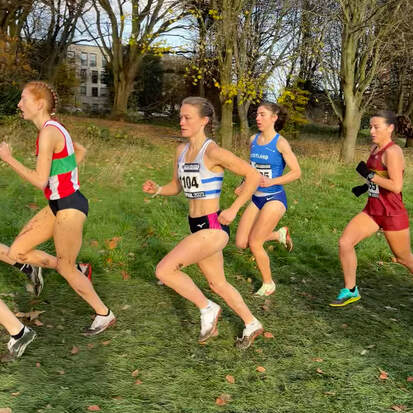
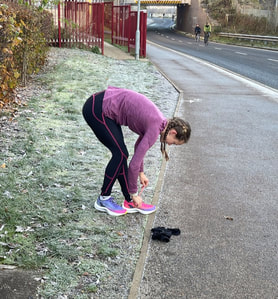
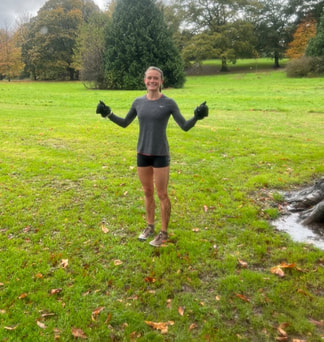
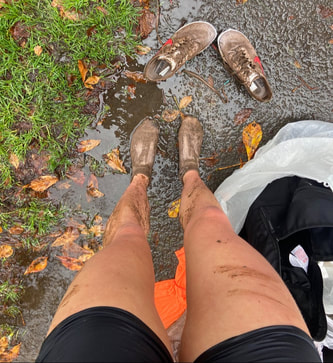
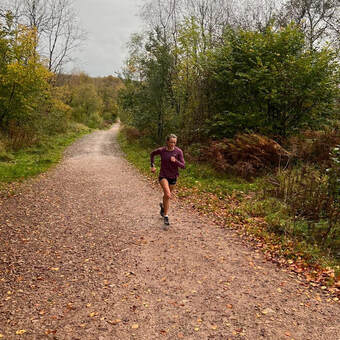

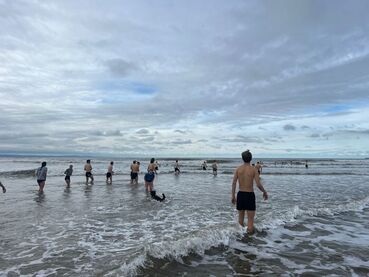
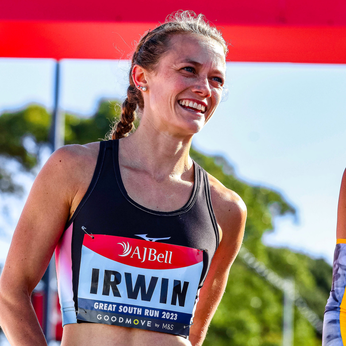
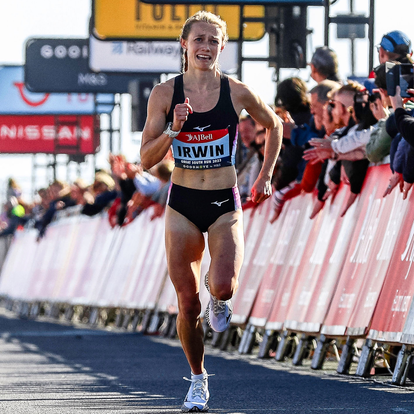
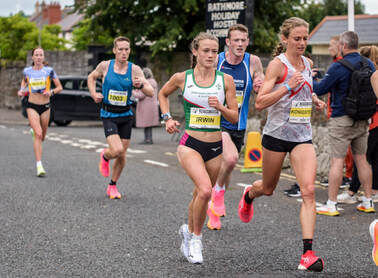

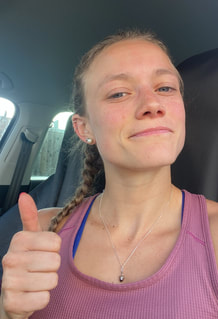
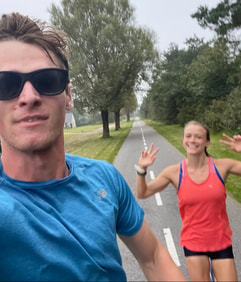
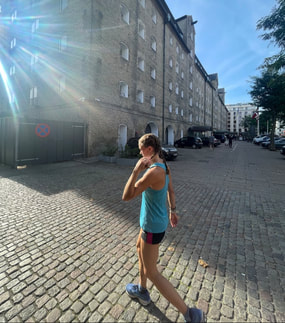
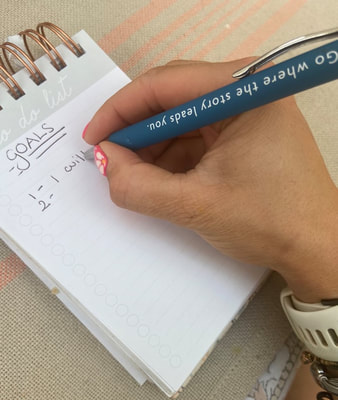
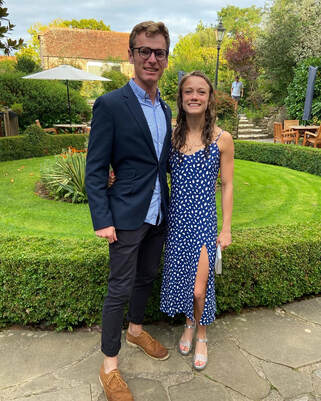
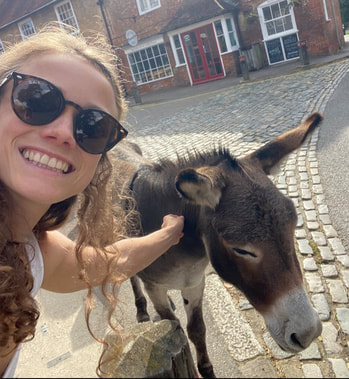
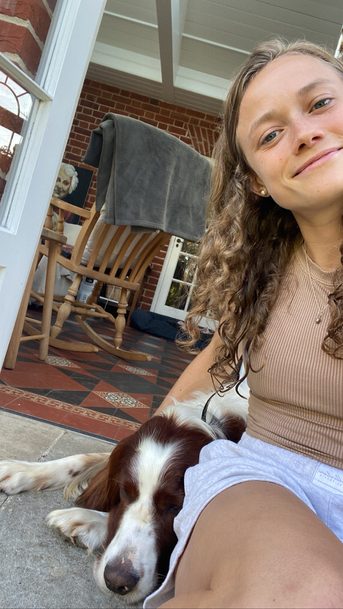
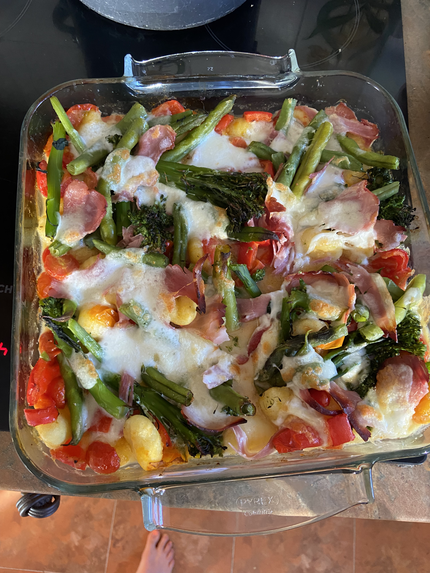
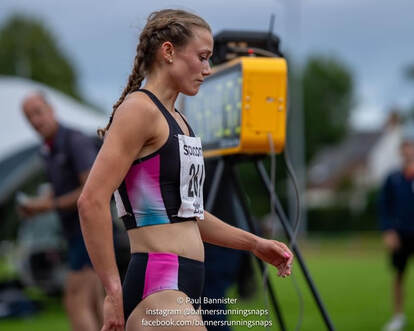
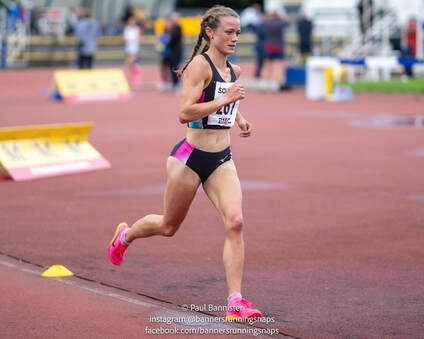
 RSS Feed
RSS Feed
